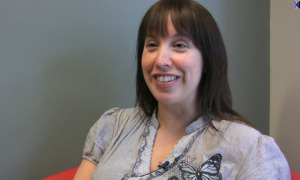The Division of Aboriginal Peoples Health began in 2001 with the intent to increase the number of Indigenous physicians, to support Indigenous students and residents, as well as to educate and support non-Indigenous physicians working in communities.
The team at the Division of Aboriginal Peoples Health are successful academics with links to First Nation communities, who design curriculum in order to facilitate and educate those interested in Indigenous health, the social determinants of health, and Indigenous strength in community. Along with the creation of specialized courses the Division is involved in implementing many exciting and interesting initiatives such as: Cultural Retreats, UBC Learning Circle, and Trigger Tapes.
Specialized Courses
The Division of Aboriginal Peoples Health has designed two Interprofessional Health and Human Services (IHHS) courses: IHHS 408 and IHHS 409.
IHHS 408
This course has been running successfully for 5 years now, and has been described by students as “transformative.” In this four-week Aboriginal health elective, students spend the duration of the course in a First Nations community. A community instructor guides the students through a mix of cultural activities and students also spend time in the local health clinic. The students benefit from experiencing the community first hand, as well as from relationships that are developed with community members, making this relational learning experience vital to the success and understanding of future healthcare professionals.
IHHS 409
This online course, developed in tandem by UBC and the University of Melbourne, will be piloted in September 2010. The course looks at colonization to explain the social determinants of health. The module that was developed by researchers at UBC examines the Indian Residential School (IRS) experience, and the legacy that continues to affect large numbers of First Nations Peoples today. This course incorporates videotaped testimony, role-playing, tele-conferencing, an Elder’s Chat Room, a Healing Circle, as well as an opportunity for UBC students to communicate their experiences to students attending the University of Melbourne. While this course is open to all UBC students, the focus is on students in the health professions.
Cultural Retreats
Every year in March, the Division of Aboriginal Peoples Health assists Indigenous students to come together from all medical programs and all UBC campuses (Vancouver, Kelowna & Prince George). The retreat occurs after exams and allows students an opportunity to reconnect and re-energize. Each year the retreat is held in a different location. Last year, the retreat was on Vancouver Island, and this year it was in Kelowna.
UBC Learning Circle
The UBC Learning Circle is a unique way to work and connect with hundreds of communities outside the Vancouver region. The Learning Circle is a videoconference series of bi-weekly sessions situated in each of the communities’ health centres. The purpose of the circle is to promote discussion and sharing about what is important to each community, centred on specific topics. Some examples of past and upcoming sessions include; Body Centred Therapy, Complex Trauma and Supporting Aboriginal Women, Men’s Health and Healing, and Self Care for the Carers.
Trigger Tapes
The Trigger Tapes have been developed for educators to facilitate discussion regarding inadequate care given to Indigenous clients by non-Indigenous physicians. The tapes are enactments based upon real interactions between doctor and client, and are being used across the country as a framework for discussion exploring cultural awareness, appropriate discourse and relevant assistance for Indigenous patients.
Current Research
Current Research conducted by the Division centers around developing better relationships between non-Aboriginal physicians and their Indigenous patients, and measuring the actual health outcomes of these better relations. Two different projects are underway: The UBC Cultural Safety Project, and Educating for Equity.
UBC Cultural Safety Project
This project takes place in the town of Skidegate, with the assistance of Skidegate health professionals and community members. The research stemmed from community members who indicated that healthcare relationships were not good. There is a real wish by the community to “heal the fissure” that exists between client and professional there. The Division is looking at these relationships and listening to suggestions by the community, and developing ways to change interactions between healthcare providers and the Haida community.
Educating for Equity
A CIHR grant was recently awarded to the Division to examine whether a healthcare intervention to improve the health of Indigenous Peoples is working. This is a multi-national project bringing together UBC, the University of Calgary and the a variety of other universities, as well as the Australia and New Zealand Research Council to test whether educating physicians will make a difference in actual health outcomes of Indigenous patients (ie: will blood pressure improve etc.).

